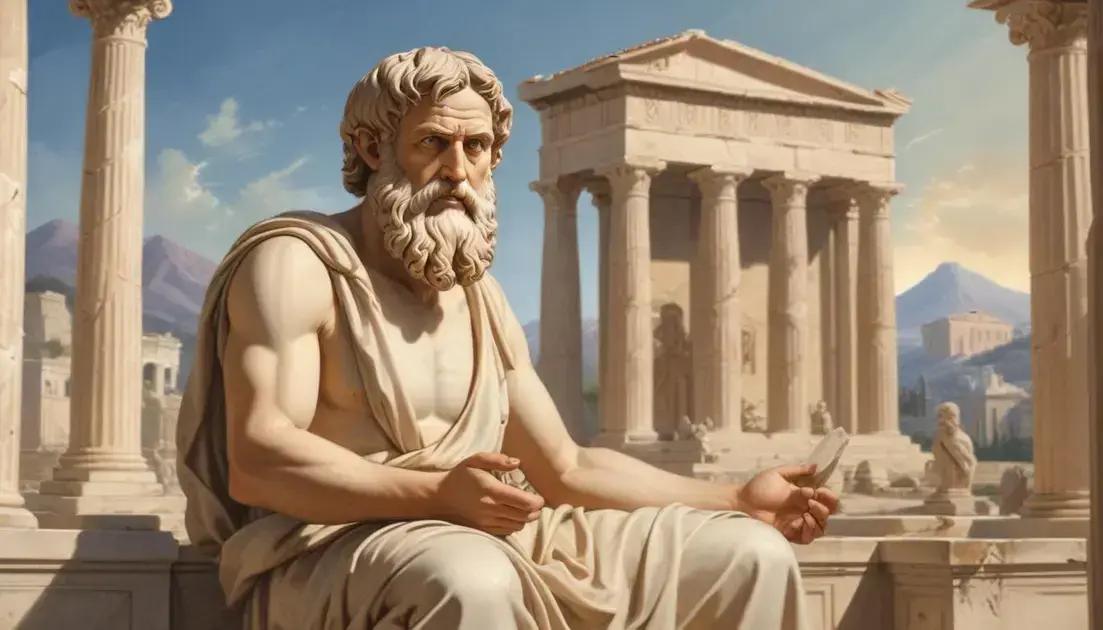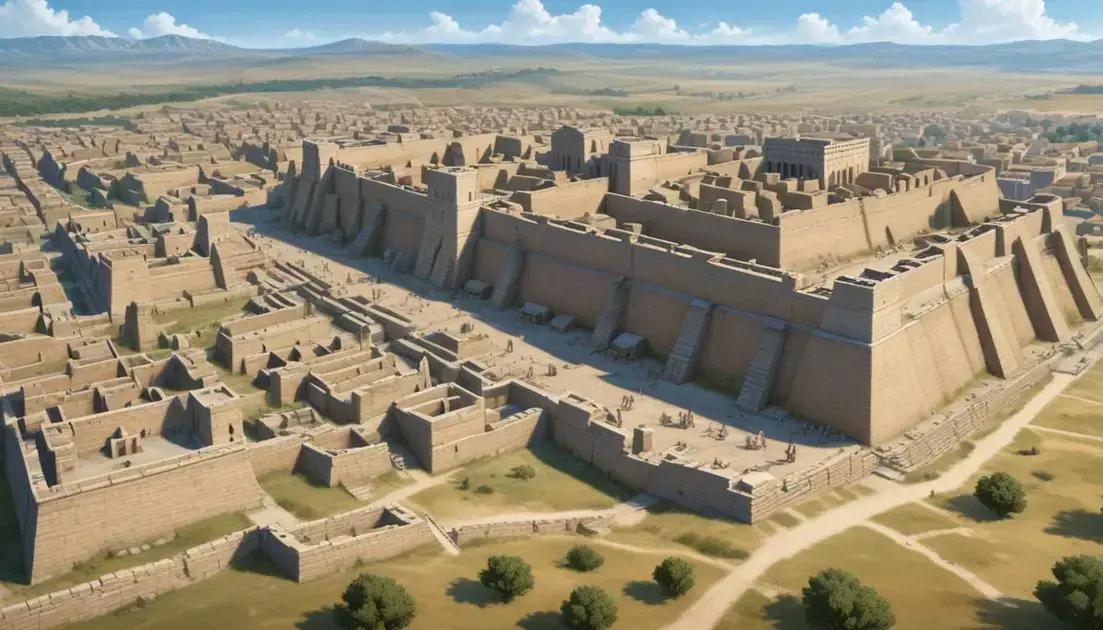
Plato: The World of Ideas and the Search for Truth
Plato’s philosophy has significantly influenced modern thought, especially in areas like ethics, governance, and the pursuit of truth. His key concepts, such as the Theory of Forms, emphasize that our physical world is merely a reflection of a higher reality. He advocated for justice rooted in balance and promoted the use of reason for understanding knowledge. His dialogues encourage critical thinking, which remains vital in today’s educational contexts. Overall, Plato’s legacy continues to shape discussions on morality, leadership, and wisdom.
Have you ever pondered the essence of truth? Plato boldly explored this within the realms of ideas and justice, influencing our world today. Let’s dive in!
Understanding Plato’s Influence
Understanding Plato’s Influence
Plato is one of the most important figures in Western philosophy. His ideas about justice, knowledge, and reality have shaped how we think today. Plato believed that our world is just a shadow of a more real world of ideas.
This idea is called the Theory of Forms. According to it, everything we see is just a reflection of perfect forms or ideas. For example, a chair is just a copy of the perfect idea of a chair. This shows how Plato wanted us to think beyond the physical world.
Another key point in Plato’s thinking is the concept of justice. Plato thought that true justice is about balancing the needs of the individual and the community. This idea set the stage for many thoughts on ethics that we still study today.
Plato also influenced how we understand knowledge. He argued that knowledge is not just information; it’s about knowing the truth. This idea makes us reconsider how we seek knowledge and which sources we trust.
His works, especially “The Republic,” are still widely read and discussed. They offer deep insights into democracy, education, and leadership. Plato’s influence can be seen in modern philosophy, politics, and education.
Key Concepts of Justice
Key Concepts of Justice
Justice is a big idea in Plato’s philosophy. He believed justice is not just about laws but about balancing the soul. For Plato, a just person has harmony within themselves. They know how to balance their desires, needs, and reason.
According to Plato, there are three parts of the soul: reason, spirit, and appetite. Each part has its own role. Reason should lead the way, with spirit supporting it, while appetite needs to be kept in check. This balance creates a just individual.
In his famous book, “The Republic,” Plato describes a just society. In this society, everyone has a role that fits their skills. This is called specialization. When people do what they are best at, society runs smoothly.
Plato also believed that true justice comes from knowledge. He argued that a just ruler must understand what is truly good. A wise leader can make better decisions that benefit everyone. This idea still matters today in discussions about leadership.
Justice, for Plato, affects not just the individual but the whole community. When individuals are just, the city becomes just too. His ideas challenge us to think about our own actions and their impact on society.
The Search for Truth
The Search for Truth
Plato’s idea of truth is very deep. He believed truth is connected to knowledge. For him, truth isn’t just facts; it’s about understanding the real world, which goes beyond what we see every day.
In his Theory of Forms, Plato explained that the material world is not the ultimate reality. What we experience is just a shadow of the true forms that exist. To find truth, we need to look past appearances and think critically about life.
Plato encouraged people to ask questions. He believed that questioning helps us reveal deeper truths. Through dialogue and discussion, we can explore different ideas and perspectives.
In his writings, especially in “The Allegory of the Cave,” Plato illustrated this concept. People in the cave see shadows on the wall and think it’s reality. When one escapes the cave, he discovers the sun, representing the ultimate truth. This metaphor illustrates how hard it can be to find and accept the truth.
Searching for truth means being open-minded. It requires effort, patience, and a willingness to learn. Plato’s ideas challenge us to question what we know and strive for a clearer understanding of reality.
Plato’s Legacy in Modern Philosophy
Plato’s Legacy in Modern Philosophy
Plato’s influence on modern philosophy cannot be overstated. His ideas shaped many thoughts about ethics, politics, and knowledge. Today, philosophers still refer to his works for insights and inspiration.
One of his most significant contributions is the emphasis on reason. Plato believed that reason should guide our understanding of the world. This idea paved the way for rationalism, which argues that knowledge comes from logical thinking.
Plato also laid the foundation for discussions about morality. His views on justice and virtue continue to be central in ethical debates. Many modern ethical theories trace their roots back to his ideas.
In politics, Plato’s idea of the philosopher-king influences views on governance. Leaders who understand what is good can create a just society. This concept is still relevant in today’s discussions about leadership and governance.
Furthermore, his dialogues encourage critical thinking. Engaging with different points of view helps to foster deeper understanding. This practice remains vital in modern educational settings where debate and discussion are encouraged.
Overall, Plato’s legacy lives on. His thoughts inspire new generations of thinkers to explore big questions about life, knowledge, and society. Philosophers around the world continue to draw from his rich ideas in their quest for understanding.
Conclusion
In conclusion, Plato’s ideas have shaped our understanding of justice, knowledge, and truth. His influence on modern philosophy remains strong. By emphasizing the importance of reason, justice, and the search for knowledge, he set foundations that continue today.
His concepts encourage us to think critically about ourselves and the world around us. From ethics to politics, Plato’s legacy invites us to explore deeper questions. Understanding his philosophy helps us navigate our lives and decisions more wisely.
As we study his works, we see the connections to many areas of our lives today. Plato not only shaped philosophy but also impacted how we educate, govern, and understand morality. Embracing his teachings can lead to richer discussions and better understanding in our modern world.


